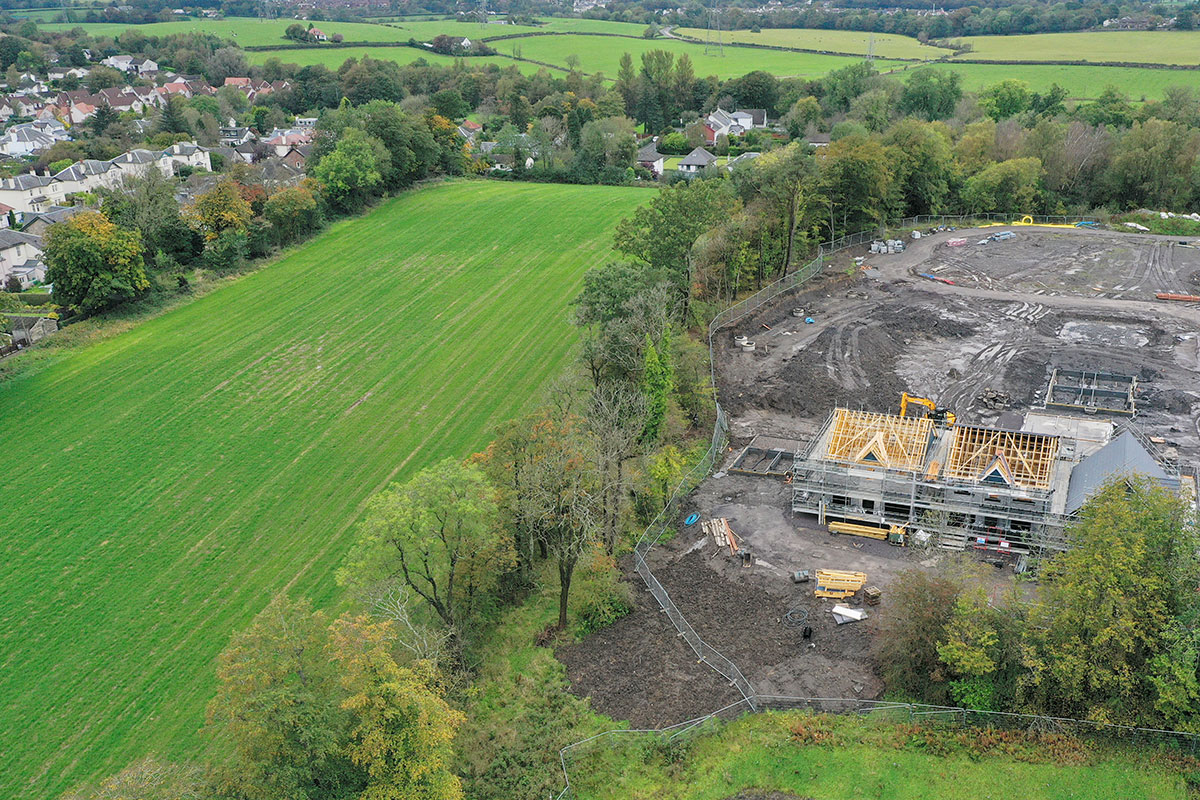You are viewing 1 of your 1 free articles
Homes England calls on housing associations to lead regeneration drive as new strategy published
The chief executive of Homes England has called on the housing association sector to help lead its new focus on major regeneration projects, as it unveils its new five-year strategy.
Speaking to Inside Housing, Peter Denton pledged to support housing associations looking to involve themselves “in the new workspace, the new last mile logistics, the new park”.
The strategic plan, to be announced today at the UKREiiF conference in Leeds, said that Homes England will “go beyond” housing work to fully support the government’s levelling up agenda.
Mr Denton said that the plan, signed off by housing secretary Michael Gove, reflected Mr Gove’s aims around sustainability, quality, placemaking and the need for more affordable housing.
In its past, he observed, at different times, the public body has been a regeneration agency and a housing agency. “Now there’s a clear mandate for both,” he said.
Housing providers have recently been lobbying for more direct government investment in regeneration schemes.
Currently, government grant is not available for regenerating or replacing ageing stock, with affordable housing funds limited to new build projects.
Mr Denton confirmed that Homes England would retain its current name but said that it would more prominently refer to itself as ‘the housing and regeneration agency’.
“If we look at secondary offices that will or won’t meet 2030 energy efficiency targets, if we look at the continuingly challenged retail market, I think those assets will become opportunities for housing associations to be engaged in regeneration activities in urban cores,” Mr Denton said.
Here, housing providers would develop affordable homes and be “involved in the residential, but they’re also involved in the new workspace, the new last mile logistics, the new park”.
With its regeneration brief, Homes England can support those providers that want to move into a more ambitious placemaking role, he said, adding: “We desperately need housing associations and other private sector affordable providers to engage with wider regeneration and placemaking.”
Homes England said it had £16bn of combined capital spend, comprising loans, grants, equity and guarantees, to deploy by March 2028, as well as a range of statutory powers.
The agency managed the (now ended) Help to Buy scheme and will run a cladding safety scheme that is about to launch, as well as the Building Safety Fund, which will impact hundreds of thousands of leaseholders.
Mr Denton said that many housing associations are taking an interest in placemaking and regeneration as the sector matures. “Most affordable housing providers have been doing this for years,” he said. “If you look at what Clarion and Places for People are doing… [they’re] creating entire communities.”
Homes England has already begun work on significant regeneration projects. A partnership in York with Network Rail will provide roads, bridges, a park, one million sq ft of commercial space and at least 2,500 new homes. Digbeth in Birmingham, a project with the West Midlands Combined Authority, will see the BBC move its Midlands headquarters to the site alongside 1,000 homes, 35% of which will be affordable.
Mr Denton said that the private sector should provide 80% of the capital for regeneration projects while Homes England provided 20%, but he added: “We’re happy to be the first 20%.”
He said this could help develop a masterplan and infrastructure, which means “we’ve de-risked it and we’ve given confidence to the private sector to come in.”
In March Homes England issued new guidance for its Affordable Homes Programme, which included social rent-specific grant rates alongside the ability for councils to use grant funding on market sale acquisitions. Mr Denton confirmed that “we have secured flexibilities that will look to support the sector better in these current times”, promising more detail in the near future.
Sign up for our development and finance newsletter
Already have an account? Click here to manage your newsletters












